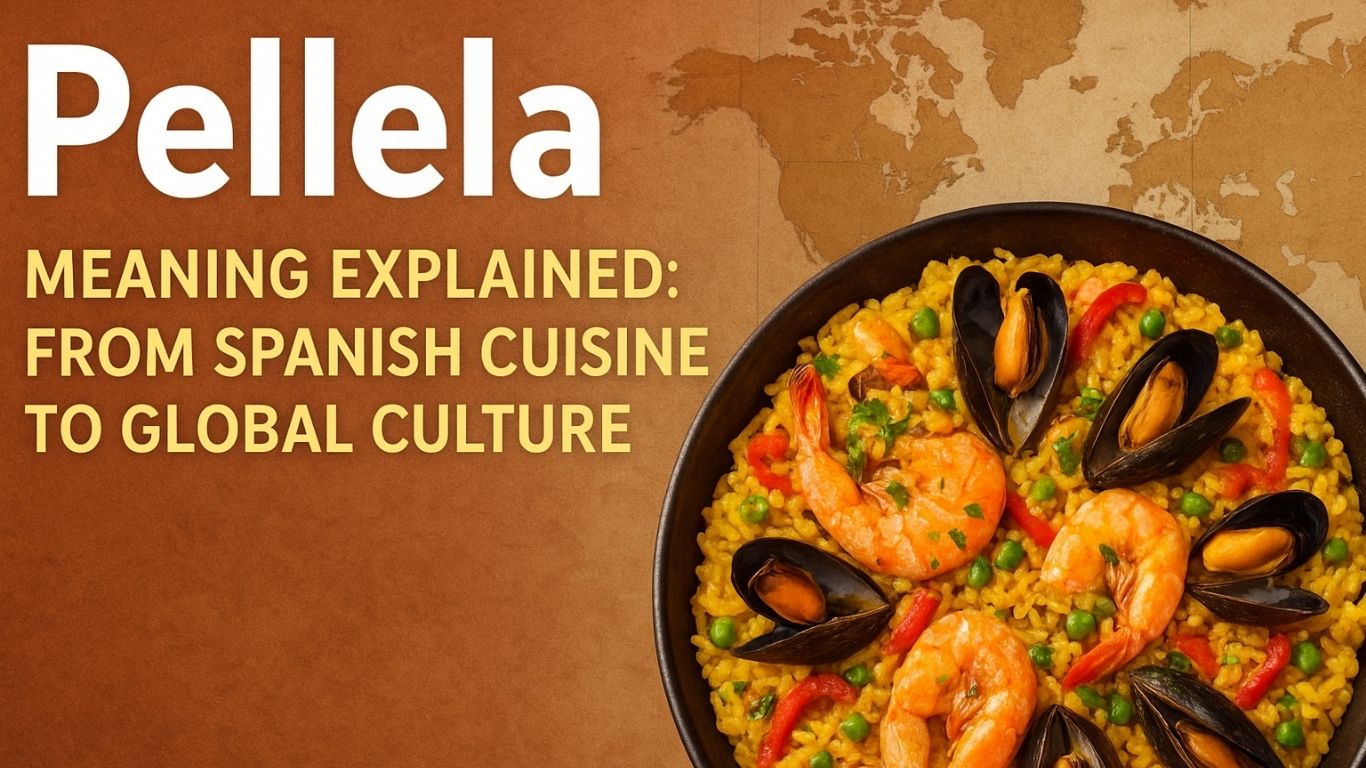In today’s connected world, words often travel across languages, cultures, and even continents — sometimes changing meaning along the way. One such fascinating example is the term “pellela.” Though not officially recognized in most English dictionaries, pellela has found its way into online searches, discussions, and even cultural contexts. But what exactly does pellela mean? Is it a typo, a name, a place, or a traditional term from another culture? Let’s explore the many layers of this intriguing word — from Spanish cuisine to global culture.
1. Pellela and Its Connection to Paella
For many people, pellela appears to be a misspelling of “paella,” the famous Spanish dish known for its colorful ingredients, rich aroma, and festive flavor. This confusion makes sense because, in Spanish, the double “ll” is pronounced like a “y” sound. As a result, non-native speakers hearing “paella” might write it as “pellela.”
What Is Paella?
Paella originated in Valencia, Spain, and has become one of the most iconic dishes of Spanish cuisine. Traditionally cooked in a wide, shallow pan called a paellera, it combines saffron-flavored rice with seafood, chicken, vegetables, or rabbit. Over time, regional variations like seafood paella (paella de marisco) and mixed paella (paella mixta) gained worldwide popularity.
If you stumbled upon pellela in a food context, it’s almost certainly a reference to this beloved Mediterranean meal. The global fame of paella — or as some might mistakenly write it, pellela — symbolizes the cultural journey of food names across languages and regions.
2. Pellela as an Italian Surname
Beyond its culinary connection, Pellela (or Pelella) is also known as an Italian surname. This surname is most common in southern Italy, particularly in regions such as Campania and Calabria. The name may have roots in the Italian word pelle, meaning “skin” or “hide.”
Family names like Pellela often originated from occupations, geographical features, or physical traits associated with the first family members who bore them. So, someone named Pellela might have descended from a family involved in leatherwork or hide trading centuries ago.
In modern times, individuals with the surname Pellela can be found in Italy, the United States, and parts of South America — a reminder of how names, like words, travel with migration and time.
3. Pellela in Indian Historical Context
Another less-known but historically interesting usage of Pellela comes from Indian history and architecture. In certain regional glossaries, the term “pelella” (a variant spelling) refers to a temporary wall or screen made from leaves and branches. These makeshift walls were often used in villages or rural settings to provide shade, privacy, or protection during traditional ceremonies or construction work.
While this usage is rare today, it shows how the term pellela (or similar phonetic variations) has appeared independently in multiple cultures, each with a distinct meaning and context. This diversity of interpretation adds depth to the word’s modern intrigue.
4. Pellela as a Place Name
Interestingly, “Pellela” has also appeared in modern travel blogs and digital maps as a geographical name. Although not widely documented, some travel writers and photographers describe Pellela as a serene and lesser-known destination blending natural beauty with cultural charm.
Whether this place name refers to an actual village, a stylized travel brand, or a fictionalized destination in storytelling, the term evokes a sense of mystery and adventure — a name that feels familiar yet exotic.
This growing trend of adopting unique or linguistically rich words like Pellela for places, resorts, or projects highlights how language evolves in the digital age.
5. The Cultural Journey of Pellela
What makes pellela so fascinating is its ability to cross boundaries — linguistic, geographical, and cultural. Depending on where and how you encounter it, the word can mean:
- A misspelling of Paella, the Spanish rice dish.
- An Italian surname with historical roots.
- A traditional Indian term for a leaf-based screen or wall.
- A geographical or brand name symbolizing culture, travel, or adventure.
Each meaning tells a story of language evolution — how sounds and spellings shift when words travel between tongues, and how digital culture preserves even small linguistic quirks like pellela.
6. Why People Search for Pellela
Search trends show that many people type “pellela” when looking for paella recipes online. Others might be researching family origins, trying to trace the surname Pellela through ancestry databases. Some are likely intrigued by its cultural or historical context.
From an SEO perspective, pellela is a low-competition keyword with diverse search intent, making it valuable for content creators, travel bloggers, and culinary websites who want to attract a curious audience looking for “unique” terms and their origins.
7. The Global Appeal of a Single Word
Language is more than communication — it’s a reflection of how humans share ideas across time and place. Pellela may not be an official word, but it captures something universal: connection through culture.
Whether it’s the aroma of a Spanish paella, the pride of an Italian surname, the craft of Indian traditions, or the allure of a hidden travel spot, pellela represents the blending of heritage, identity, and storytelling in a globalized world.
8. Conclusion: Pellela’s Meaning in Today’s World
So, what is the real meaning of pellela?
The answer depends on context — and that’s what makes it so intriguing.
If you’re a food lover, pellela leads you to the world of Spanish paella, rich in flavor and history.
If you’re a genealogy enthusiast, Pellela might connect you to your Italian ancestry.
If you’re a history buff, it opens a window into India’s traditional crafts.
And if you’re a traveler or creative, the name Pellela might inspire your next journey or brand.
In short, pellela is more than just a word — it’s a symbol of how cultures overlap and evolve. Its multiple meanings show how a simple term can connect food, family, history, and geography — weaving them into a single global story.





